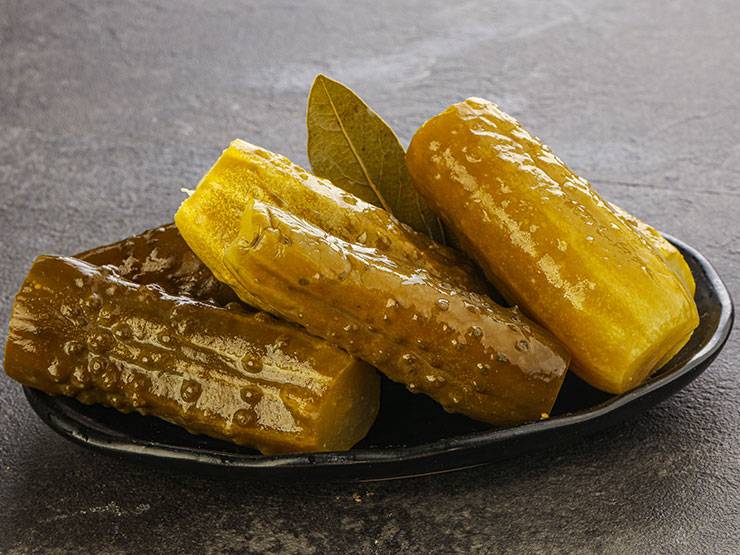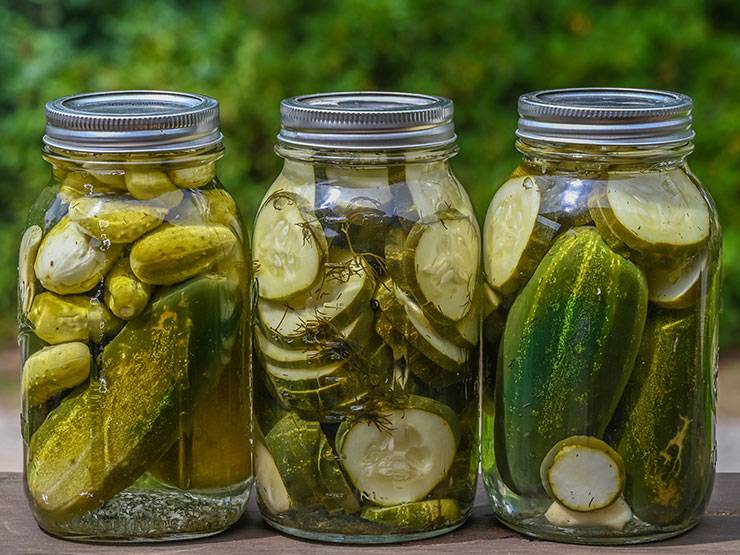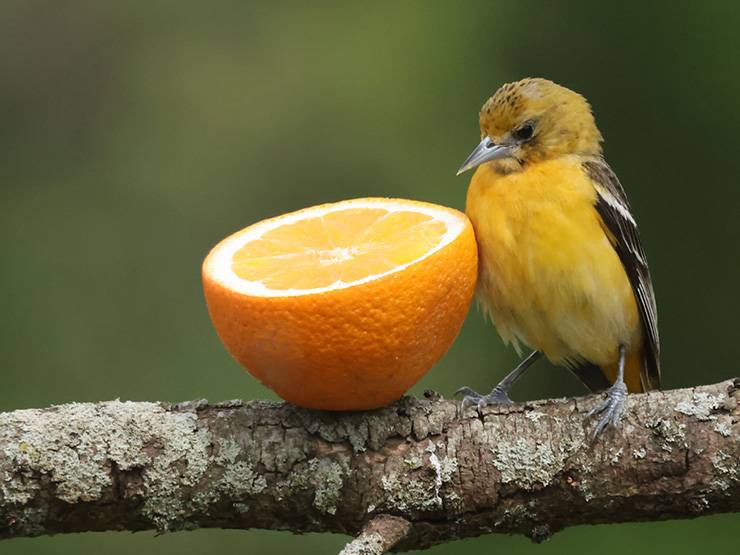Pickles are that “Guilty Pleasure” snack we always have lying around our pantry. Of course, it goes with burgers and sandwiches. You can even eat them straight out of the jar!
If you’re a bird enthusiast, you can more often find yourself thinking: Can I feed pickles to birds?
Birds should avoid pickles, as they are loaded with salt, which can lead to salt toxicosis and other health issues. Additionally, pickles are not a natural food source for birds and lack the essential nutrients they need.
It doesn’t sound alien if you think pickles are just vinegared cucumbers. Birds love cucumbers of their refreshing sweetness.
But the question remains:
Are Pickles Safe for Birds to Eat?
Birds enjoy anything you give them. They will love nibbling crunchy pickles with their beaks. It’s a great sensory activity for them to indulge in while snacking.
However, not everything they enjoy is safe. Pickles are high on the list.
Pickles are human food. Most human foods contain high amounts of sodium. On the other hand, birds often get a balanced sodium level from their diet. Hence, introducing more salt to their daily intake can lead to salt toxicosis.
We humans can have both by metabolizing and enjoying a certain sodium content in our diet. However, birds have a simpler digestive system when compared to humans.
Hence, mass-produced pickles are a big no-no for birds because they are for human consumption only.
Pickles contain nutritional values that can aid your bird’s diet; it doesn’t compensate for how detrimental salt toxicosis can be.

Even though treats are meant purely for pleasure, they shouldn’t have the potential to be fatal. The same goes for giving pickles to birds as treats.
You surely won’t want birds suffering because of indulging in a treat, right?
What Is the Nutritional Value of Pickles?
Pickles are fermented food which means they work wonders for your gut health. But how nutritious can a fermented cucumber be for birds’ health?
Let’s find out!
Pickles have a high concentration of vitamins. Vitamins and minerals like Calcium, Vitamin C, Potassium, and Vitamin A are great for young birds.
Vitamins help in growing strong and healthy bones in birds. Vitamin C means they are full of antioxidants; this ensures these birds have a perfect immune system.
Despite all these, the ingredients used to make pickles outweigh the benefits. Salt toxicosis can be deadly as its symptoms go overlooked, considering how small of a creature birds are.
What Are Some of the Health Issues Caused by Pickles?
As previously mentioned, one of the primary problems is salt toxicosis. Trust me when I say salt toxicosis is a battle both you and your bird are unlikely to survive.
Salt poisoning is highly detrimental to a bird’s health. Recovery can be just as strenuous, both physically and mentally.
Symptoms of salt toxicosis are extreme dehydration, shortness of breath, fatigue, and vomiting.

These symptoms are milder; these happen in the earlier stages. Nonetheless, the long-term symptoms can be fatal.
Other health conditions caused by adding pickles to a bird’s diet can be kidney failure and heart disease.
High sodium content in pickles can cause blood to be diluted and makes the kidney work overtime. These problems lead to these health conditions.
What to Do If Your Bird Eats Pickles?
It isn’t unusual for our pets to take an interest in whatever we eat. So if you find out your bird accidentally sneaked a bite of pickles, your first task should be to prevent further consumption.
Check how much your bird has consumed to determine whether taking a trip to the vet is preliminary or not. What might seem a small bite to us can make an impact on birds. Hence, bear that in mind while checking.
You should observe your bird for the next few hours to see if any symptoms surface. If any symptom comes up, visit your vet or contact the pet poison helpline immediately.
Even if nothing happens, hydrate your bird to ensure no toxins remain in its system to cause damage.
Last but not least, prevent incidents like these in the future by keeping toxic foods out of reach of your pets. Educating family members and small children about the dangers is equally necessary.
What Are Some Safe and Healthy Treats for Birds?
As mentioned before, birds enjoy almost everything you give them; this is why finding healthy treats isn’t that big of a headache.
Considering how birds’ diets evolve mostly around natural foods, you also don’t have to go through the hassle of buying them from stores or making your own at home.

Hence, without further ado, here’s a detailed list of healthy treats that are great substitutes for pickles:
- Peppers: These are a great alternative to pickles because of their crunchy texture and acidic flavor. They are full of antioxidants your bird would receive in a much healthier way, unlike eating pickles.
- Seedless Grapes: These provide the same refreshing nourishment you’d expect your birds to acquire from pickles but in a safer way. The sourness will compensate for the unhealthy vinegary flavor of pickles.
- Oranges: Is there a better way to add vitamin C to your bird’s diet?
- Apples: The crunchy sweetness of the apples is the perfect refreshing snack for your birds to enjoy on a hot summer day.
Are Cucumbers Safe for Birds to Eat?
The very reason behind the question ‘Can birds eat pickles?’ is cucumbers. Are cucumbers healthy, though?
Of course, they are! Cucumbers are high in fructose which will satiate your sugar frenzy bird. Their water contents also ensure birds are hydrated.
However, cucumbers should also be reserved as a snack only. Their high fructose content doesn’t make them suitable to be part of their primary diet.
Final Remarks
With all being said, my verdict remains that risking your bird’s health just for them to enjoy a snack should never be justified.
Great alternatives listed above are also found in our pantry daily.
Researching more about alternatives that suit you and your bird’s needs is always welcome.
Lastly, if you suspect your bird has consumed foods toxic to them, it’s always best to reach out to your vet or a pet poison hotline.